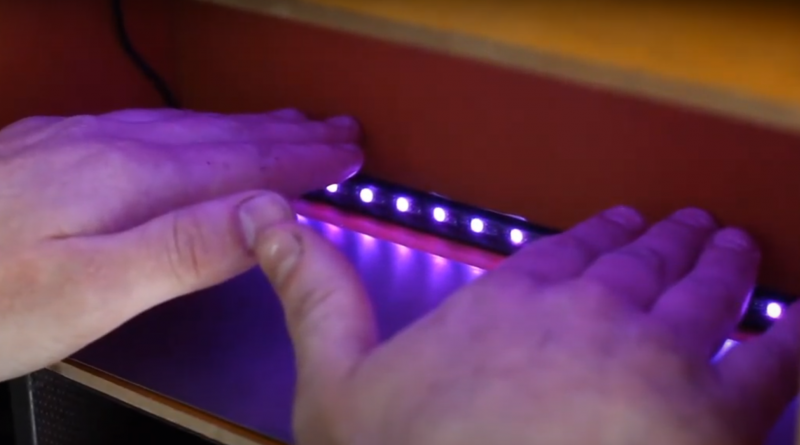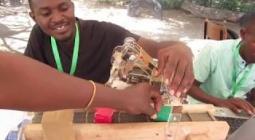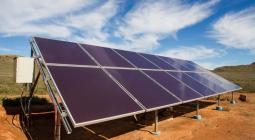Solar-powered hand sanitiser wins ESA-backed hackathon.

A start-up company that has repurposed upcycled solar cells to generate ultraviolet light to disinfect people’s hands has won €20 000 in a hackathon designed to share and rapidly develop ideas to combat the coronavirus pandemic.
More than 12 000 people from over 100 countries took part in the Global Hack, organised by Estonian-based Garage48 and sponsored by ESA’s business incubation centre in Estonia. Entrants were kept motivated by a recorded message from ESA astronaut Samantha Cristoforetti.
The winners were announced on 12 April.
The disinfection station uses light at wavelengths demonstrated to kill germs but to be safe for skin and eye contact. It was presented by SunCrafter, a German start-up business that uses modules decommissioned by industrial solar farms to provide power to remote communities.

Lisa Wendzich, founder and chief executive, said that the company – which is based on the Siemens innovation campus in Berlin – was now working with partners to identify how to manufacture significant numbers of the units in the coming weeks and months.
“This technology could be used in field hospitals, refugee camps and urban slums in countries with poor energy supplies, as well as in public spaces in the global north,” she said.
The hackathon tackled 12 topics, including education, the economy, mental health and the environment.
Joana Kamenova, an outreach and business analyst at ESA, was one of 180 people to volunteer as a response mentor during the hackathon and she helped to evaluate some of the proposals.
“There were very progressive ideas about tackling the current crisis. How do we support small businesses coming out of the current lockdown? How do we learn from this crisis and tackle climate change? To contemplate how the emerging solutions can be scaled up by using space data and technology is very exciting. Some of the ideas are truly epic,” she says.
“We have partnered with this truly global movement to put Estonia’s exceptional digital infrastructure to best use to make the ideas come alive,” says Andrus Kurvits, manager of the ESA business incubator centre in Tartu, Estonia.
“We will connect with teams that developed novel space-related ideas to help them get the financial support they need to bring their solution to market.”
ESA’s business incubation centres provide funding and support to help entrepreneurs to bring their ideas to market.
16 April 2020
eesa




